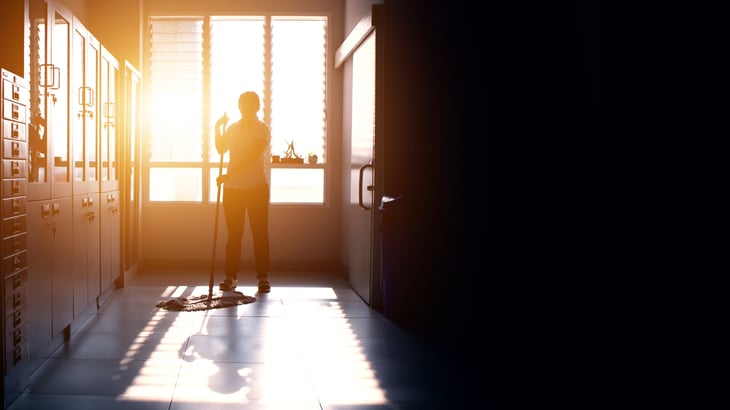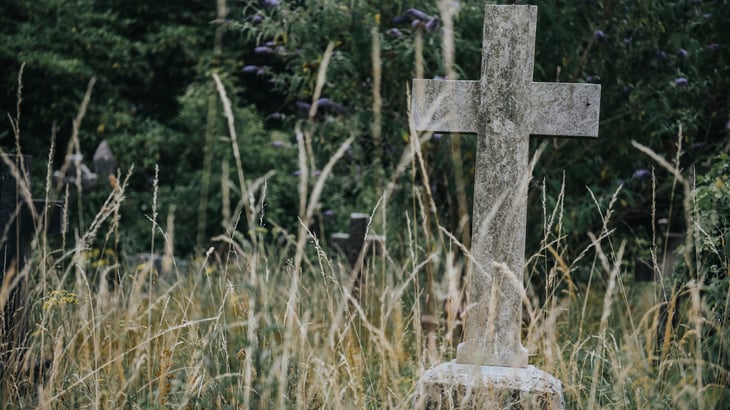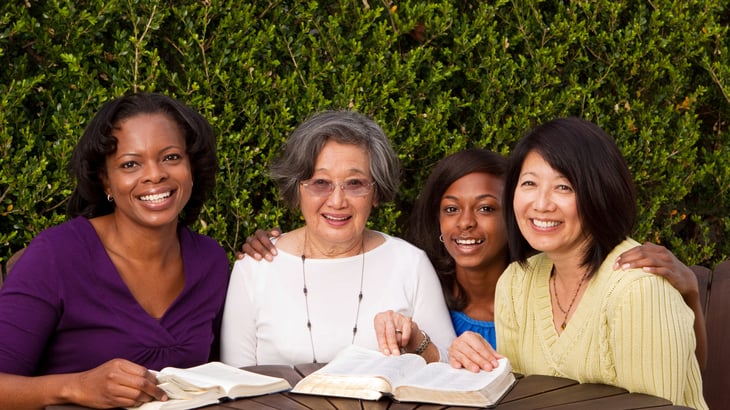Find Peace by Fearing God in Isaiah 8
There is peace to be found in the fear of God.
One of the practices our nation has had to adopt in the face of COVID-19 is contact tracing, identifying those with whom the infected person has had contact, and taking measures to isolate and treat such persons to control the spread of the virus. Sally contracted the virus from Dave, who contracted it from Arnold, and so forth.
The people of Israel had a virus of sorts, one from which they never seemed to be able to extricate themselves: that of adopting the idolatrous practices of those with whom they had contact. Throughout the history of the Israelites, they struggled to maintain purity in their worship to the Lord, instead taking on the beliefs and practices of the Egyptians, Assyrians, Babylonians, and so forth. This went on for generations. Like COVID-19 and contact tracing, the path and growth of this faithlessness to the Lord can be tracked. The people decided to fear the gods of those around them more than the one true God.
Teaching Children about God's Design for Marriage
“Mommy, how do you get a baby in your tummy?” If you’re a parent, there’s a good chance you’ve been asked many sweet, innocent questions like this one that are hard to answer. The questions aren’t hard to answer because the answers are complicated, but they can feel hard to answer because of the importance of the topic. When explaining topics related to sex and marriage to our children, it is always a balancing act.
Taking Faithful Notes on Life Lessons
I first met Ben when he was a freshman in my English class. He did something one day that I believe will stick with me for the rest of my teaching career. Every once in a while, I’ll interrupt the academic lesson with a casual thought that begins with “This is a life lesson …”
Where Is the Holy Spirit in Spirit Week?
Has anyone else realized the horror of “Decades Day” as a part of Spirit Week all around the country? Those of us who have teenagers under our care may be familiar. During Spirit Week at many high schools, students get to dress up and celebrate at school with fun and wacky outfits. For “Decades Day,” students enjoy wearing throwbacks from earlier times, choosing one decade to represent the occasion.
Jesus, the Silent Redeemer of Isaiah 53
The text of Isaiah 53 is one of what are called the Servant Songs—portions of Isaiah’s prophecy that refer directly to Jesus Christ and His work of redemption. It can’t be overstated how good these words must have sounded to the people of Israel. Isaiah writes at the end of the Assyrian occupation of the Northern Kingdom, before the destruction of Assyria and subsequent occupation of Babylon.
Memorizing the Catechism with Your Kids
Recently I wrote this article about our catechism routine in our homeschool. As I was taking the time to think over my family’s rhythms, I found myself contemplating all the day-to-day ways we benefit from having pieces of the Small Catechism memorized in our household.
School Excellence Requires Christian Community
In my last blog, I wrote about how grace drives excellence. Particularly, I pointed out the importance for the Lutheran educator to strive toward excellence in his craft of teaching. I would like to continue with that theme as we consider that while the Lutheran educator strives for excellence as a response to the grace received by God, such excellence is impossible outside of a community.
God Redeems and Preserves His Children
David understood the reality of his own mortality. As king, he represented a people who lived under constant threat from foreign enemies, foes who would gladly have seen the Lord’s beloved die. Nevertheless, as we read in Psalm 16, David expresses relief and confidence, not that he would never die, but rather that he would not remain in the grave.
Key Questions to Understanding Christian Discipleship
Over the last few posts in this series, I have explored this definition for mature discipleship: Mature disciples of Christ actively cultivate the attitudes, understandings, and habits of abiding in God’s Word in a variety of ways throughout life.
Using Luther's Small Catechism for Kids in a Homeschool Setting
One of my favorite things about homeschooling is the opportunity to be intentional about catechesis. I was homeschooled as a kid, and am now going through my second homeschooling journey, this time as the mom. I’m on my fourth year of “serious” homeschooling: this year we have a third-grader, a first-grader, a preschooler, and a one-year-old climbing around and keeping things interesting. Since the beginning, we have developed a rhythm of starting each school morning with devotions and catechism time.























